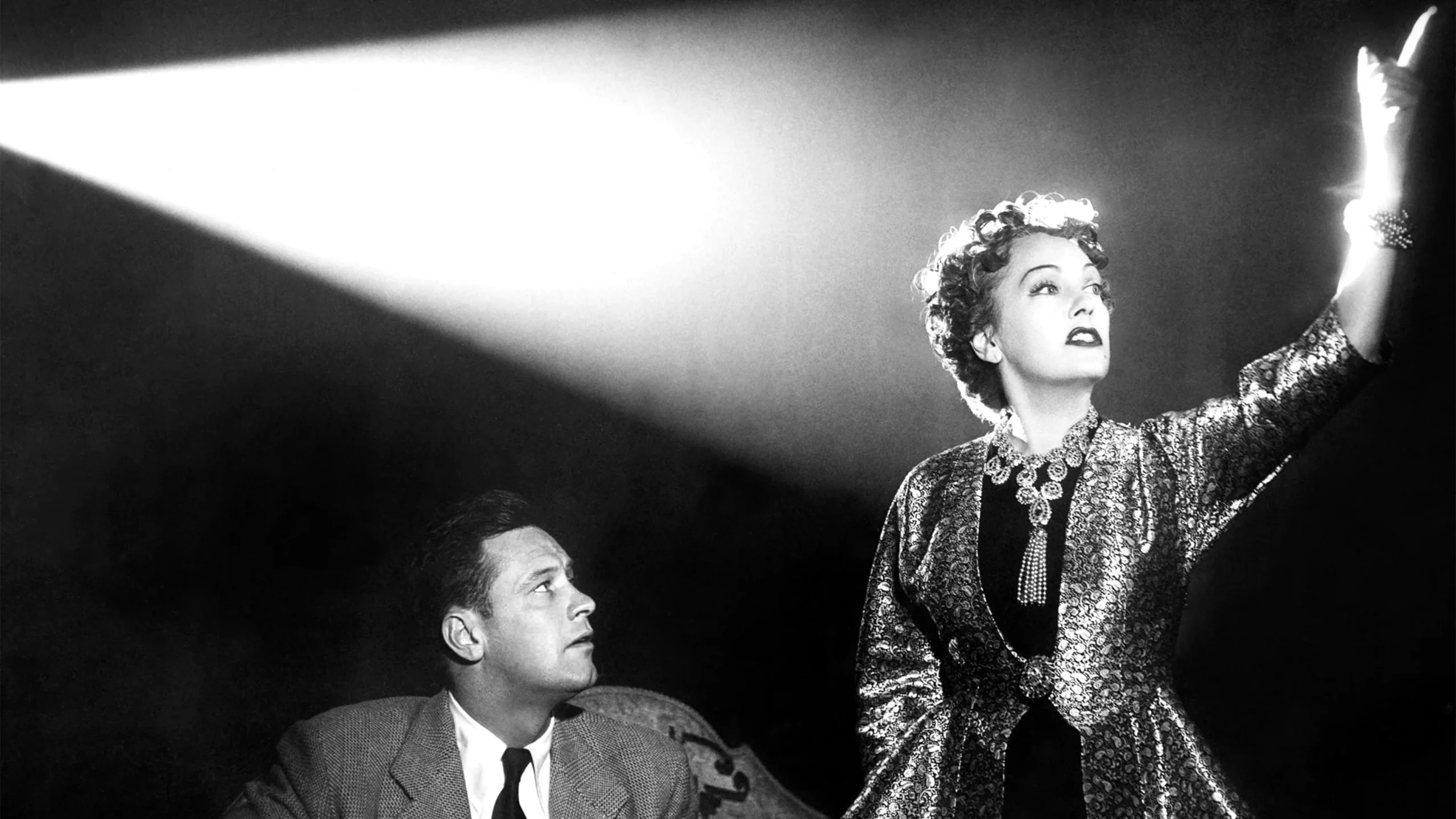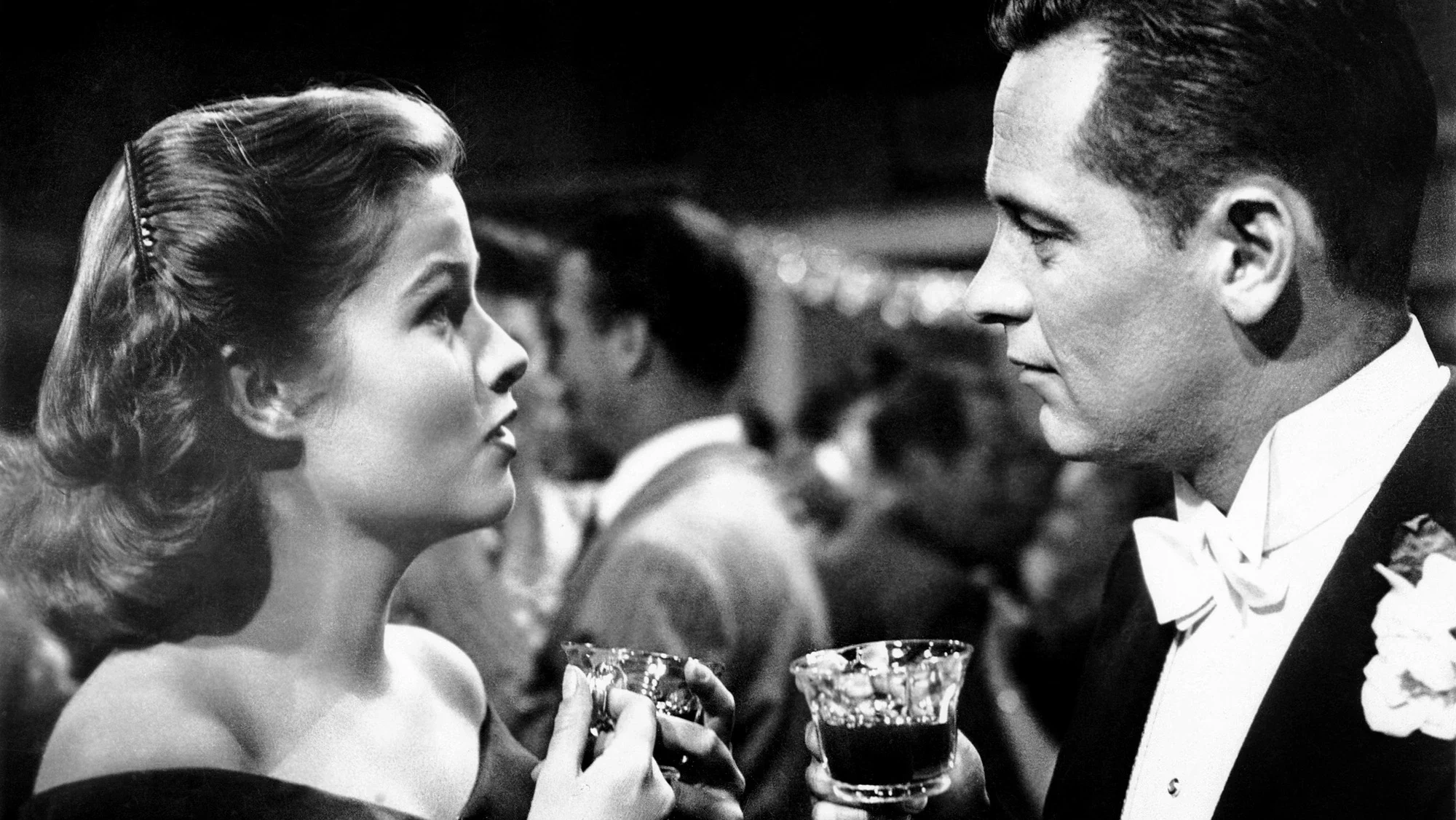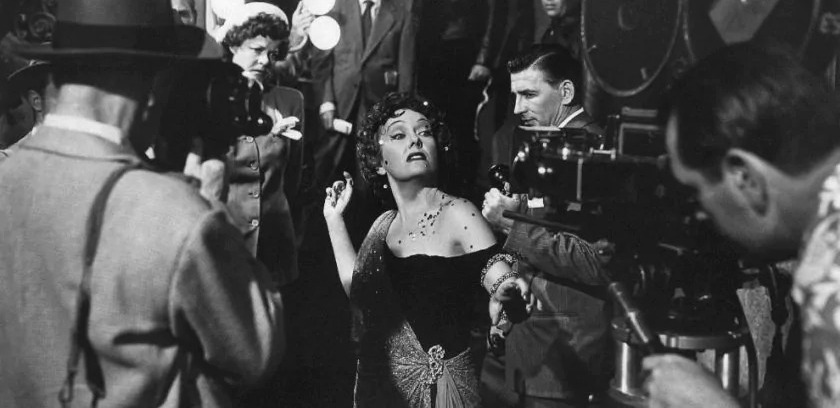Madeline Choi reviews Billy Wider’s classic film noir comedy Sunset Boulevard, which screened at FOMI 2022.
The first day of this year’s Festival of the Moving Image (FOMI) closed with a special 16mm screening of Sunset Boulevard (1950). Ciné Real— the only film club in the UK to exclusively play films on celluloid— provided a unique viewing experience of the widely acclaimed noir. With the title being sat static on my Letterboxd watchlist for the past three years or so, I walked out of the first day of FOMI with a feeling that the screening of Sunset Boulevard will be one that I will cherish for a long time. There’s just something insanely romantic about being in a crowd of film lovers, watching a black-and-white classic with the traditional cinema magic of a 16mm screening.
Sunset Boulevard, directed by Billy Wilder, is a film about the film industry. Sunset Boulevard, a road that runs through the middle of Hollywood, acts as a backdrop to the exile of the forgotten silent film star Norma Desmond and her gradual descent into complete madness. The film opens with a shot of a dead man floating in the middle of a pool of an extravagant mansion as the dead man, Joe Gillis, flashes back to the story of Sunset Boulevard, retelling the six months leading up to his death. A broke and chased down screenwriter, Joe, finds himself in the garage of Norma Desmond’s mansion on 10086 Sunset Boulevard and agrees to a private script doctor job in exchange for a place to stay and the safekeeping of his car.

The film’s plot is centralised around the archetype of a mad woman who is unable to adjust to the changes of the world around her. A once famous star, who placed Paramount Pictures on the film industry map, now receives fan letters secretly written by her butler, fails to secure her comeback project, and is only remembered by filmmakers for her unusual car. She’s scared of ageing as she desperately undergoes a myriad of extensive beauty treatments to treat her wrinkles and spots- all while delusionally imagining her comeback, which she never lands. She dwells on her outdated fame as she obsessively screens her own silent films to a rather uninterested Joe.
The first interaction between Joe and Norma sees the exchange: “You used to be big,” to which Norma responds with the classic line “I am big. It’s the pictures that got small.”
The dialogue of Sunset Boulevard is witty, snappy, and entertaining throughout the two-hour run time. The film never seems to slow down after the plot’s introduction in the first act as the seemingly never-ending dialogue slowly unravels the tragedy that plagues 10086 Sunset Boulevard. The tension builds as the side plot of the romance between Joe and the young script reader, Betty, plays contrapuntally with Norma’s mental spiral. The film presents and compares the potential of a romance between the two ambitious screenwriters with the one-sided, stunted romance of 10086 Sunset Boulevard.

My favourite and, objectively, the grandest sequence of the film is the film’s ending. The cameras that Norma so desperately longed for in the midst of her delusional preparation for her comeback invade her mansion as she fully loses touch with reality. With the police and reporters around her playing along as her butler calls “Action!”, the cameras roll as Norma dramatically descends down her lavish staircase in a feverish sequence. The final line of the film “All right, Mr. DeMille, I’m ready for my close-up.” haunts the audience as Norma steps in front of the camera and towards the viewers with a horrifying facial expression of pure delusion of grandeur. As the credits roll, the nuanced portrait of a tormented silent-film star lingers.
Gloria Swanson’s 1950 performance and take on the mad woman archetype is enthralling, even with a seventy-two-year gap between today and the film’s release date. Her multilayered performance is showcased through her effortlessly witty yet narcissistic persona and her ability to seamlessly switch between a comedic Charlie Chaplin impersonation and a full-on suicidal woman desperate for validation. Despite her mad descent, it’s impossible not to feel for Norma due to Swanson’s captivating performance.
Sunset Boulevard, in spite of its tight dialogue, dazzling set pieces, and dramatic performances, is a simple film about films. Wilder’s sprinkling of film references throughout the runtime is enough for multiple rewatches, with something to be revealed on every rewatch of the classic. Sunset Boulevard is a well-crafted classic that every film lover needs to watch.
Watch the trailer for Sunset Boulevard here:




